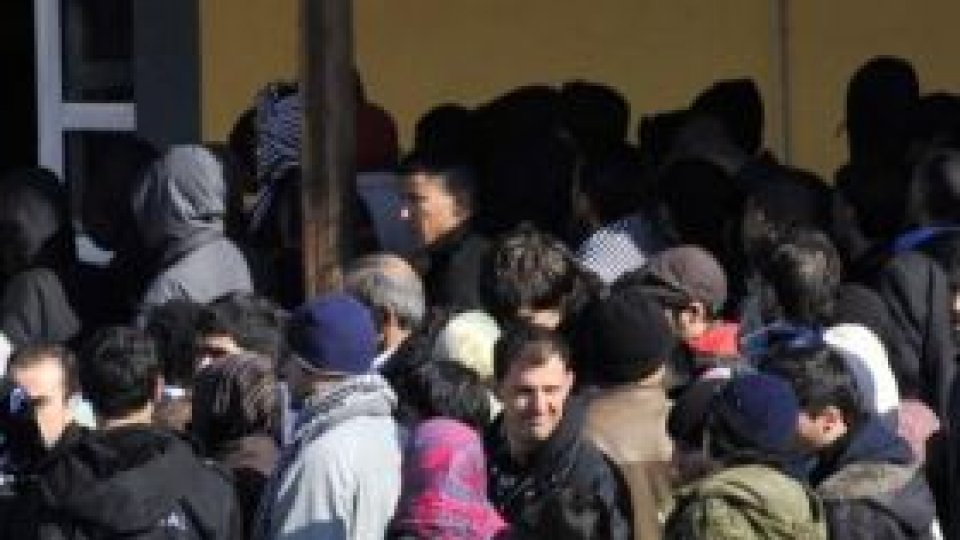“Economic growth of 4.5 percent” in third quarter
According to the National Institute of Statistics, the economic growth reached 4.5 percent Between July and September, as compared to the same period of the previous year.

Articol de Sergiu Şteţ, 16 Noiembrie 2011, 09:11
The National Institute of Statistics announced that between July and September, the economic growth reached 4.5 percent, as compared to the same period of the previous year.
The authorities attribute this evolution to the good data pertaining to agriculture, exports and even constructions.
Romania’s economy increased with almost 2 percent between July and September, as compared to the second quarter, during April, May and June.
One of the explanations is that the harvesting season of the various agricultural products starts in July.
According to the data of the Ministry of Agriculture, this year’s crops have been some of the
most significant in the last decade, comprising all agricultural sectors.
Between July and September the economic growth reached 4.5 percent, as compared to the same period of the previous year.
The growth is important, it is one of the highest growths among European countries, but this is also the result of the fact that the third quarter of the previous year was a low one.
Financial analyst Dragoş Cabat stated that, the previous year, the third semester was the one to experience the VAT increase the most, and the firings as well, and therefore, there was a decrease of the GDP.
“Therefore, now, when we compare the third quarter of this year with the one of the previous
year, the third quarter of the last year had a lower value”, Dragoş Cabat stated.
According to Eurostat, the highest economic growths have been known by the countries which in
2010 have undergone severe economic recessions.
Among them, Lithuania, Estonia and Romania. One problem which Romania is going to face during the next months is the influence of the austerity measures from countries such as Spain, Italy, Greece or France.
The Romanian communities from these countries will find a job with more difficulty and will gain less.
“There was a rather high number of Romanians who worked in these countries, sent money home, money which was spent by their families or invested by their families here.
This money no longer exists. Anyway, this is obvious. The transfers from abroad have decreased significantly during the recession and, unfortunately, they will continue to decrease in the following period and this is why everybody is saying that we are in great need of the money from the European Union”, Dragoş Cabat stated.
The majority of analysts expect a growth of the economy with over 2 percent in Romania during this year.
However, Romania’s budget for the following year is based upon the hypothesis of an economic growth varying from 1.8 percent and 2.3 percent of the GDP.
EU recovery, far from the expectations of the community leaders
According to the editor of Radio Romania News, Cătălin Lenţa, the economic recovery of the European Union is still far from the expectations of the community leaders, the growth from one quarter to another being, most often, almost inexistent.
Surprisingly, the highest economic growth was registered by Romania, with 1.9 percent, as compared to the similar period of the previous year and in rapport to the European average of only 0.2 percent.
The data have been announced on Tuesday by Eurostat, the institution which officially deals with the statistics of the European Union.
It must be observed that some of the community states have not managed to add anything to the economic growth, and they have even undergone decreases, although not significant.
Three states of the European Union have undergone economic decreases. We are talking about Cyprus, -0.7 percent, Portugal, -0.4 percent and the Netherlands, -0.3 percent.
There are data referring to the economic evolution on quarters, and they are calculated for the third semester, as compared to the second.
And if the figures are compared to the similar period of the previous year, the decreases are even more significant, the greatest one being known by the country facing the most problems: Greece, with -5.2 percent, followed by Portugal, -1.7 percent and Cyprus, with -0.6 percent.
The greatest growths during the third quarter have been known by the countries which have undergone severe economic recessions the previous year.
Among them, Lithuania, Estonia and Romania.
For 2012, it is hard to establish the prognosis due to the crisis which confronts the Euro zone, while its resolution is being rendered difficult by the social instability, which has similar effects on a political level.
The last days have led to the changing of governments in Greece and Italy, while Spain is getting ready for anticipated elections at the end of the week.
Translated by: Mădălina Borcău
MA Student, MTTLC, Bucharest University














